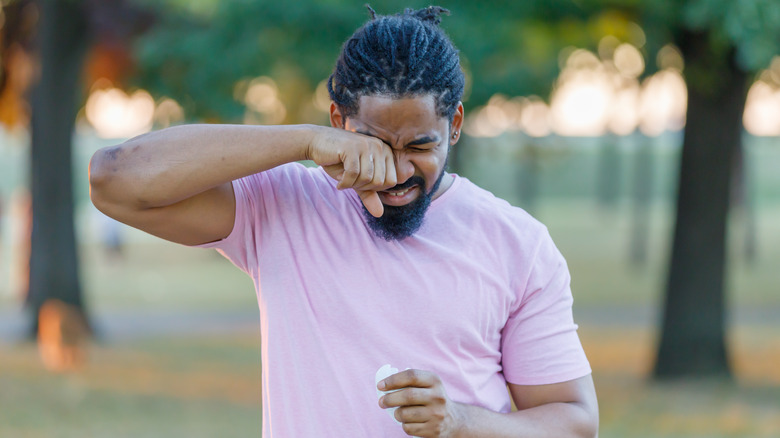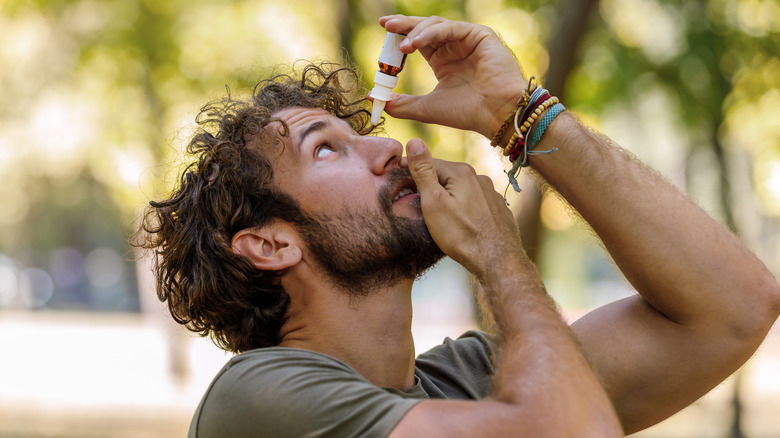What It Means When Your Eyes Feel Sore
You know the feeling of sore eyes. They may feel tired, irritated, and maybe even appear a little red. Perhaps you've been staring at those blue screens all day, rushing from place to place in polluted air, and not getting enough sleep. Even though your eyes do so much for you throughout your day, they can certainly take a beating from all the work.
You're not alone. According to the Optometrists Network, half of people experience sore eyes. Your eyes can be sore from an infection from bacteria or a virus. Wearing contact lenses for too long can make your eyes feel irritated. Pollen, dust, smoke, or air pollutants can have you rubbing your eyes. Your immune system might also cause inflammation that might make your eyes feel pain. And if the fluid in your eyes doesn't drain as it should, the eye pressure could cause pain (via Cleveland Clinic). The Optometrists Network says that about one-third of eye clinic patients experience pain from dry eye.
What is dry eye?
According to the National Eye Institute, dry eye is a condition when your eyes don't make enough tears to keep your eyes wet. Not only can you feel soreness in your eyes, but your eyes could also sting, develop redness, or become sensitive to light. Dry eye might feel like you have something in your eye, or your vision can become impaired.
You're more likely to develop dry eye if you're over 50, female, or wear contact lenses. A diet low in vitamin A could put you at risk for dry eye, and autoimmune conditions like lupus could also affect your eyes. Spending too much time in front of your screens can also dry out your eyes. The American Optometric Association says that smoke, wind, and dry climates may cause your tears to evaporate quickly. Antihistamines, blood pressure medications, and antidepressants can also reduce how many tears your tear ducts produce.
Treating dry eye
If you have dry eye, there are a few ways to find relief, according to the National Eye Institute. You can help lubricate a mild case of dry eye with over-the-counter artificial tears, moisturizing gels, or ointments. More severe cases of dry eye might need a prescription to help the tear ducts produce tears. Addressing dry eye might also mean certain changes in your lifestyle. These could involve taking breaks from excessive screen time and being sure to get enough sleep. A humidifier in your home might provide relief if you know the air is dry. Wearing wraparound sunglasses while outdoors can also help protect your eyes from smoke and wind.
You also might be able to treat dry eye through your diet, according to Medical News Today. Omega-3 fatty acids are great for your heart and your eyes. Eating more salmon, flax seeds, spinach, and broccoli might help the discomfort of dry eye. It's also possible that vitamin D could ease the symptoms of dry eye. Drinking at least eight glasses of water each day can help you stay hydrated, which will reduce the dryness of your eyes.



